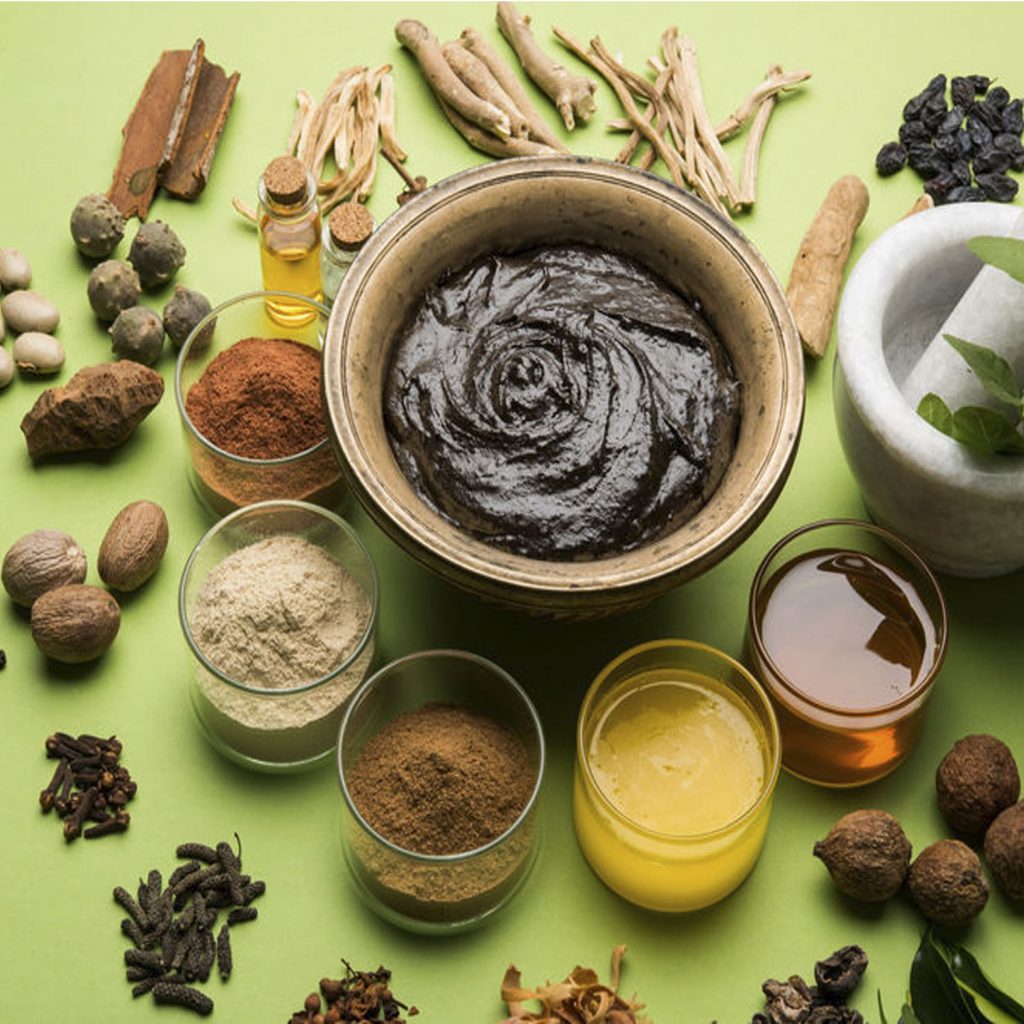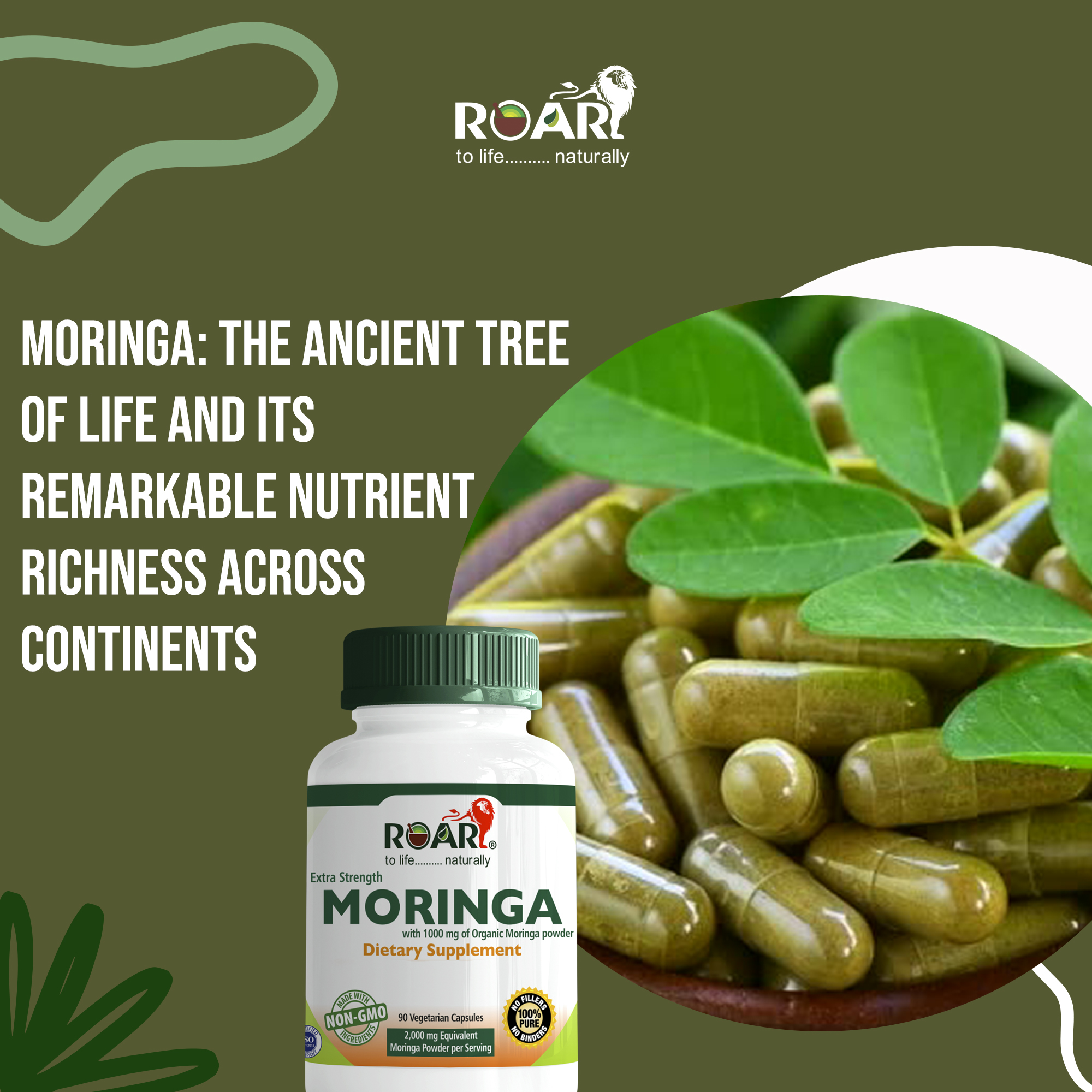No products in the cart.
7 Powerful Ayurvedic Herbs That Are Highly Beneficial | Roar Ayurveda
Ayurveda is an ancient Indian system of medicine that is based on the idea of balance and harmony between the mind, body, and spirit. It has been practiced for thousands of years and is known for its natural approach to healing. One of the key components of Ayurveda is the use of powerful herbs that have been proven to offer numerous health benefits.
In this blog, we will discuss 7 powerful Ayurvedic herbs and their health benefits in detail:
Ashwagandha
Ashwagandha is an adaptogenic herb that is commonly used in Ayurveda to combat stress and anxiety. It has been used for centuries in traditional medicine to improve energy levels and overall health. Ashwagandha root is the most commonly used part of the plant and is available in different forms such as powder, capsules, and teas.



One of the main benefits of ashwagandha is its ability to reduce cortisol levels, which is the hormone that is responsible for stress. High cortisol levels can cause anxiety, depression, and other health problems. Studies have shown that ashwagandha can reduce cortisol levels by up to 30%. This makes it an effective herb for reducing stress and improving overall mental health.
Ashwagandha also has anti-inflammatory properties, which can help to reduce inflammation in the body. The main cause of many chronic diseases such as arthritis, heart disease, and cancer is inflammation. Studies have shown that ashwagandha can help to reduce inflammation and improve overall health.
Additionally, ashwagandha is known to improve fertility in men. It can increase sperm count and motility, which can improve overall fertility. It can also improve sexual function in men and women.
Turmeric
Turmeric is a spice that is commonly used in Indian cooking, but it is also a powerful Ayurvedic herb. It is known for its anti-inflammatory and antioxidant properties. Turmeric has been used for centuries in traditional medicine to treat various health conditions.
The active ingredient in turmeric that gives it its anti-inflammatory properties is Curcumin. It can help to reduce inflammation in the body and improve overall health. Studies have shown that curcumin can be as effective as anti-inflammatory drugs for reducing inflammation.
Turmeric has also been proven to help with arthritis, digestive issues, and even depression. It is also known to boost the immune system and improve brain function. Studies have shown that turmeric can improve memory and cognitive function in older adults.
Triphala
Triphala is a blend of three fruits: amla, Haritaki, and Bibhitaki. It is commonly used in Ayurveda to support digestive health. Triphala has been used for centuries in traditional medicine to improve digestion and overall health.
One of the main benefits of Triphala is its ability to improve gut health. It can help to relieve constipation and improve overall digestion. It can also help to reduce inflammation in the gut and improve overall gut health.
Triphala also has anti-inflammatory properties, which can help to reduce inflammation in the body. It can boost the immune system and improve overall health.
Brahmi
Brahmi is an herb that is commonly used in Ayurveda to improve brain function. It has been used for centuries in traditional medicine to improve memory and cognitive function. Brahmi is available in different forms such as powder, capsules, and teas.
One of the main benefits of Brahmi is its ability to improve memory and cognitive function. Studies have shown that Brahmi can improve memory and cognitive function in both children and adults. It can also improve overall brain function and reduce anxiety.
Brahmi has also been proven to have anti-inflammatory and antioxidant properties, which can help reduce inflammation and improve overall health.
Additionally, Brahmi is known to be a natural adaptogen, which means it can help the body cope with stress. It can reduce stress levels and improve overall mental health.
Amla
Amla, also known as Indian gooseberry, is a powerful Ayurvedic herb that is known for its antioxidant properties. It has been used for centuries in traditional medicine to improve overall health.
One of the main benefits of amla is its ability to boost the immune system. It is rich in vitamin C, which can help to improve overall immunity and reduce the risk of infections. Amla can also help to reduce inflammation in the body and improve overall health.
Amla has also been proven to have anti-cancer properties. Studies have shown that amla can help to prevent the growth and spread of cancer cells.
Additionally, amla is known to improve skin health. It can reduce the appearance of fine lines and wrinkles and improve overall skin tone.
Neem
Neem is an Ayurvedic herb that is known for its anti-bacterial and anti-inflammatory properties. It has been used for centuries in traditional medicine to treat various health conditions.
One of the main benefits of neem is its ability to improve oral health. It can help to reduce inflammation in the gums and improve overall oral health. Neem can also help to prevent cavities and gum disease.
Neem also has anti-inflammatory properties, which can help to reduce inflammation in the body. It can help to reduce the risk of chronic diseases such as heart disease and cancer.
Additionally, neem is known to improve skin health. It can help to reduce the appearance of acne and improve overall skin tone.
Shatavari
Shatavari is an Ayurvedic herb that is commonly used to support female reproductive health. It has been used for centuries in traditional medicine to improve fertility and overall reproductive health.
One of the main benefits of Shatavari is its ability to balance hormones. It can help to regulate estrogen levels and improve overall reproductive health. Shatavari can also help to reduce symptoms of menopause such as hot flashes and mood swings.
Shatavari also has anti-inflammatory properties, which can help to reduce inflammation in the body. It can boost the immune system and improve overall health.
Additionally, Shatavari is known to improve digestive health. It can help to relieve constipation and improve overall digestion.
In conclusion, Ayurvedic herbs are a natural and effective way to improve overall health and well-being. These 7 powerful Ayurvedic herbs – ashwagandha, turmeric, triphala, brahmi, amla, neem, and shatavari – offer numerous health benefits and can be incorporated into daily life in various forms such as powder, capsules, teas, and more. If you are interested in trying Ayurvedic herbs, it is recommended to consult with a qualified practitioner to determine the best herbs and dosage for your specific needs.











